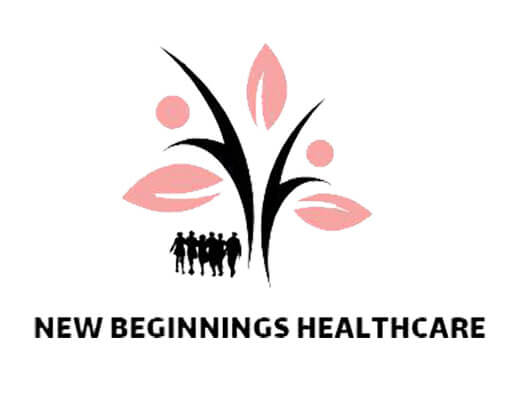Major depressive disorder (MDD) is a complex and often misunderstood condition. Many feel alone when dealing with it, even though millions live with similar symptoms every day. People with MDD struggle with their mood alongside difficulties with energy, motivation, and relationships. This can make even simple daily tasks feel almost impossible.
Unlike sadness that comes and goes, major depressive disorder symptoms tend to last for weeks, months, or even longer. The challenges are real, but so are the ways to manage them.
This article explores the best ways to manage major depressive disorder symptoms.
1. Establish a Daily Routine
For individuals with major depressive disorder, maintaining motivation can be a challenge. Creating a structured routine offers stability and reduces uncertainty. Aim to wake up, eat meals, and go to bed at consistent times each day. By adhering to a predictable schedule, you can cultivate a sense of order and control.
It is not necessary to account for every hour of your day. However, dedicating time to a few core activities can provide a strong foundation. Start with manageable goals and gradually expand your routine as you feel ready.
2. Concentrate on Small, Attainable Goals
With depression, even routine tasks can appear overwhelming, and ambitious goals may seem insurmountable. To combat this, break large projects into smaller, actionable steps. Tackle tasks one at a time, and take the time to acknowledge each victory, no matter how minor it may seem.
These small successes can restore a sense of empowerment and gradually elevate your mood. By focusing on incremental progress, larger objectives may begin to feel more achievable over time.
3. Make Physical Activity a Priority
Exercise benefits not only the body but the mind, as well. Research highlights its ability to reduce symptoms by improving mood and increasing energy levels. Begin with gentle physical activities such as walking, stretching, or light yoga. Even brief movement sessions, like a ten-minute walk, can yield noticeable improvements.
If walking feels too daunting at first, simply standing up and stretching is a step in the right direction. Activities such as swimming or yoga are also excellent choices for those looking to release tension.
4. Prioritize a Nutritious Diet
Depression often disrupts eating habits. Some individuals experience reduced appetites, while others may crave calorie-dense comfort foods.
It is essential to nourish your body with nutrient-rich choices that support overall health and well-being. Incorporate whole grains, fresh fruits, vegetables, and lean protein sources into your meals. Consuming balanced, regular meals strengthens your body. It also enhances cognitive functions, offering a much-needed boost to both physical and mental health.
5. Foster Connections with Others
A common symptom of major depressive disorder is the tendency to retreat from social interactions. However, nurturing connections with loved ones can provide meaningful support.
Try reaching out to a family member or friend with a simple text when you wake up. Share a meal, take a walk, or participate in a video call to maintain ties.
6. Incorporate Mindfulness and Relaxation Techniques
Mindfulness encourages you to observe your thoughts and emotions without assigning judgment. Techniques such as controlled breathing, meditation, or guided visualization can promote relaxation.
Set aside just a few minutes each day to pause, inhale deeply, and center yourself in the present moment. Many people benefit from using audio guides or apps to establish a mindfulness practice.
7. Keep a Journal
Journaling helps you recognize patterns in moods and triggers. Write down how you feel each day. Some people list things they are grateful for or draw pictures expressing their emotions. Over time, you may see trends that help you anticipate challenges and plan coping strategies.
8. Avoid Alcohol and Recreational Drugs
People sometimes turn to substances for relief, but these often worsen MDD symptoms. Alcohol and drugs can affect sleep and energy levels. It may also increase feelings of sadness. If you feel tempted to use substances, reach out to a trusted friend or a healthcare provider for support.
9. Get Enough Rest
Sleep troubles are common with MDD. Poor sleep can worsen depression. Try to go to bed and wake up at the same time each day. Create a calm sleep environment. Limit screen time before bed, and avoid caffeine in the afternoon or evening.
10. Learn to Be Kind to Yourself
Living with major depressive disorder symptoms is not a sign of weakness. Practice self-compassion. Speak to yourself as you would to a friend. Celebrate your strengths, even when progress feels slow.
Major Depressive Disorder Treatment
Self-help strategies can help individuals address and manage major depressive disorder symptoms. Still, professional treatment often plays an important role. Many find the greatest improvement by combining both.
Therapy
Talking to a healthcare provider can help you unpack painful thoughts and build new skills. Cognitive-behavioral therapy (CBT) is a proven technique that changes negative thought patterns. Interpersonal therapy (IPT) focuses on relationships and coping skills.
Medication
Some people benefit from antidepressants that balance brain chemicals involved in mood. Several options exist, and a healthcare provider can help you decide if medication fits your needs.
Lifestyle Interventions
Sleep, hygiene, and exercise combined with other approaches to help you manage symptoms.
Other Treatments
Sometimes, people try additional approaches like light therapy or advanced treatments recommended by providers. All major depressive disorder treatments should be discussed with a qualified practitioner.
Manage Major Depressive Disorder Symptoms in Monroe County, PA
Major depressive disorder is challenging. However, it is possible to live a fulfilling life alongside it. Managing major depressive disorder symptoms often begins with small habits and grows with support from providers.
Remember, you are not alone. If you need support, trust Dr. Akia Sheema Blandon, DNP, APRN, AGPCNP-C, of New Beginnings. Call (484) 640-5400 or submit an appointment request form. As a holistic family medicine practice, we are dedicated to helping you regain control and find hope.
Sources:
https://my.clevelandclinic.org/health/diseases/24481-clinical-depression-major-depressive-disorder
https://www.mayoclinic.org/diseases-conditions/depression/symptoms-causes/syc-20356007
https://www.mayoclinic.org/diseases-conditions/depression/diagnosis-treatment/drc-20356013

